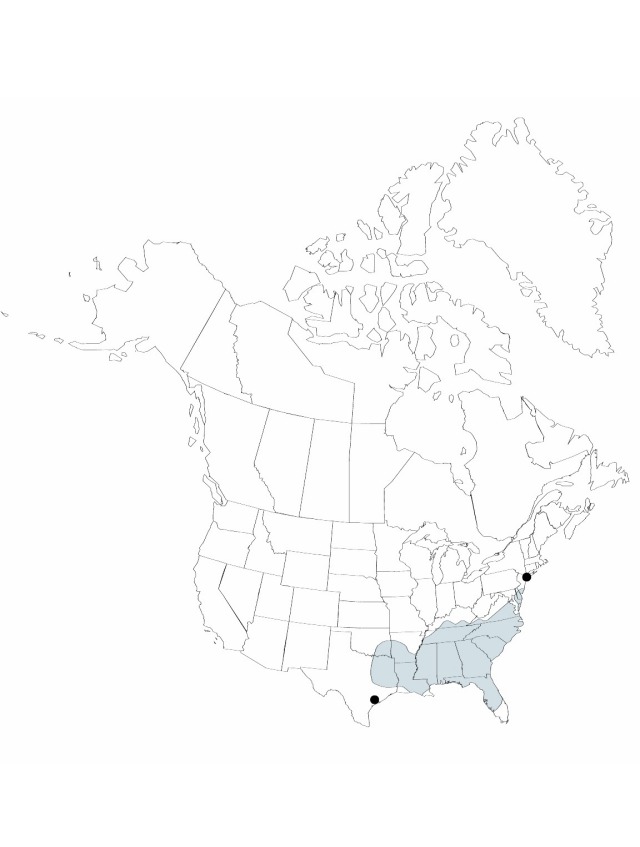Difference between revisions of "Juncus coriaceus"
Bulletin of the Torrey Botanical Club 56:28. 1929.
FNA>Volume Importer |
FNA>Volume Importer |
(No difference)
| |
Revision as of 19:01, 24 September 2019
Herbs, perennial, tufted, 3–9 dm. Rhizomes densely branching. Culms few to many. Cataphylls 1–3. Leaves basal, 0–1(–2); auricles 0.2–0.4(–0.6) mm, scarious to leathery; blade nearly terete but slightly channeled adaxially, 10–50 cm × 0.7–1.8 mm, margins entire.. Inflorescences falsely lateral, 5–35-flowered, loose to congested, 1–8 cm; primary bract exceeding inflorescence. Flowers: pedicels 0.5–2.5 mm; bracteoles 2; tepals dark green, lanceolate, 3.5–5 mm; inner series slightly shorter, apex acute; stamens 6, fewer in cleistogamous flowers, filaments 0.8–1.2 mm, anthers 0.5–1.1 mm; style 0.9–1.3 mm. Capsules light to dark brown, 1-locular, widely ovoid to nearly globose, 3.5–5 × 2.6–3.2 mm. Seeds light to dark brown, oblate, 0.55–0.73 mm, not tailed. 2n = 80.
Phenology: Flowering and fruiting spring–early summer.
Habitat: Springy, wet woodlands, stream banks, marshy areas, flatwood depressions, and shaded or exposed disturbed, sites with poor drainage
Distribution

Ala., Ark., Del., Fla., Ga., Ky., La., Md., Miss., N.J., N.Y., N.C., Okla., S.C., Tenn., Tex.as, Va.
Discussion
Selected References
None.